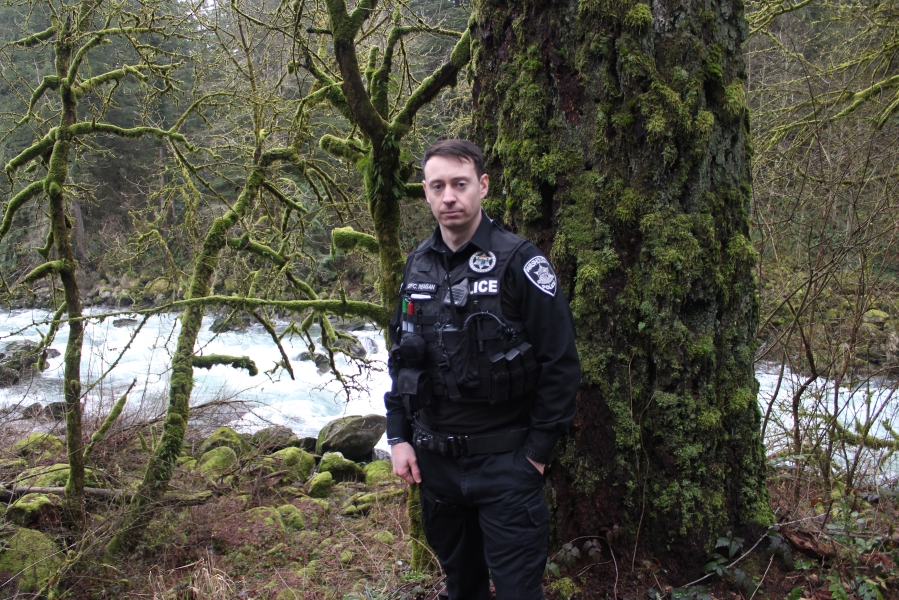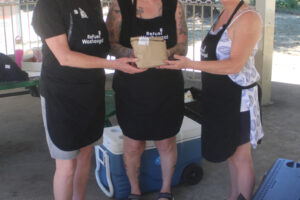It is a chilly, gray Thursday afternoon, and Washougal police officer Francis Reagan is standing in quiet contemplation near the Vernon Road Bridge off Washougal River Road.
Journalists hover nearby with interview and photo requests for the officer who, nine months prior, had helped save a life on the Washougal River waters rushing below.
Surrounded by moss-covered trees and the quiet sounds of nature, it’s difficult to imagine this place as anything other than peaceful. But Reagan vividly recalls the May 2019 tragedy that led him here — the call saying a woman had fallen from her inner tube while floating in the river and become trapped by a rock and the fact that the woman’s friend, unbeknownst to police at the time, had also fallen off his tube that evening and been swept away by the river. The woman would survive, rescued by Reagan and other officers, but the man’s body would not be discovered for several months.
“It’s seared in my mind forever, not only for what we did and what we accomplished, but for the life lost,” Reagan said. “It’s a tragic, and at the same time amazing, thing. My heart goes out to the family (of the man who died). It’s horrible. Part of me doesn’t want to make it a big deal about this because a life was lost. One was saved, but one was lost. It’s a bittersweet moment. It’ll be seared in my mind as one of my top near-death experiences.”
The loss of life is why Reagan struggles just a bit to frame what he did that night in purely heroic terms. When the Washington Council of Police and Sheriffs recently named him the group’s “2019 Law Enforcement Officer of the Year,” Reagan downplayed the honor, saying the rescue was truly a team effort.




